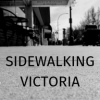
Victoria Barwatch Program
#61

Posted 23 July 2009 - 08:25 AM
#62

Posted 25 July 2009 - 07:29 AM
As I said
But Loukidelis said he does not have the power to force bars not named in his order to stop capturing information from identity cards. “I'm not going to run around checking whether bars are doing it tonight or next week,” he said
When the next investigation is done 5 years from now then the Victoria bars can sort out what they want to do.
#63

Posted 25 July 2009 - 08:03 AM
From today's TC ..
As I said
But Loukidelis said he does not have the power to force bars not named in his order to stop capturing information from identity cards. “I'm not going to run around checking whether bars are doing it tonight or next week,” he said
When the next investigation is done 5 years from now then the Victoria bars can sort out what they want to do.
Well, exactly. The original complaint was filed on June 13, 2004. So it took 5 years and just over one month to come up with his ruling.
#64

Posted 25 July 2009 - 09:39 AM
The real question is what powers the OIPC has to actually enforce their decisions. If I recall, the answer is squat.
The OIPC is granted the same powers as that of a judge of the BC Supreme Court. He can shut down the Legislature if justified.
Basically the OIPC wants to be seen as a helping agency to steer not to judge except in extreme cases. I've worked with their office off and on over the years and found them to be non-confrontational and good to work with.
This current interpreatation is to not stop the scanning of ID's but to make them change their practise regarding the collection and storage of the data.
In other words he's telling them to build a better mousetrap.
#65

Posted 25 July 2009 - 05:55 PM
Nightclubs in Victoria are no longer scanning IDs after the province’s Information and Privacy Commissioner David Loukidelis barred the practice last week.
The Victoria Bar and Cabaret Association initially said members would continue scanning IDs because Tuesday’s ruling applied only to the Vancouver nightclub where the complaint originated.
But Friday, the association acceded to the privacy watchdog’s insistence the ruling applied to bars across the province.
http://www.timescolo...9228/story.html
#66

Posted 25 July 2009 - 06:11 PM
Victoria bars stop scanning IDs after B.C. privacy watchdog ruling
http://www.timescolo...9228/story.html
We are being the nice guys, as new kids on the block. The other 82 bars in the province continue business as usual tonight.
#67

Posted 25 July 2009 - 07:16 PM
The OIPC is granted the same powers as that of a judge of the BC Supreme Court. He can shut down the Legislature if justified.
Basically the OIPC wants to be seen as a helping agency to steer not to judge except in extreme cases. I've worked with their office off and on over the years and found them to be non-confrontational and good to work with.
This current interpreatation is to not stop the scanning of ID's but to make them change their practise regarding the collection and storage of the data.
In other words he's telling them to build a better mousetrap.
My point was that the OIPC cannot enforce a ruling on anyone other than the party named in the original complaint. At the speed at which the OIPC works and the ability for parties to delay the proceedings, it would have been another 5 years before a complaint against a Victoria bar had its own ruling.
#68

Posted 04 August 2009 - 01:56 PM
Aug 4, 2009
BC'S PRIVACY COMMISSIONER SAYS HE WANTS TO WORK WITH LOCAL INTERESTS IN FINDING A SOLUTION FOR THE BAR WATCH PROGRAM.
DAVID LOUKIDELIS SAYS SO FAR HE'S HAD TALKS WITH THE OWNER OF TREOSCOPE TECHNOLOGY, THE VICTORIA POLICE DEPARTMENT AND THE VANCOUVER POLICE DEPARTMENT.
http://www.cfax1070....hp?newsId=10052
#69

Posted 04 August 2009 - 06:06 PM
Bottom line: TreoScops is NOT in the personal information collection business, they are in the bar safety business. If they can run the program without collecting personal information, it should be a requirement of their continued operations.
Victoria current weather by neighbourhood: Victoria school-based weather station network
Victoria webcams: Big Wave Dave Webcams
#70

Posted 04 August 2009 - 06:18 PM
I just sent an email to David Loukidelis with some of my thoughts.
Bottom line: TreoScops is NOT in the personal information collection business, they are in the bar safety business. If they can run the program without collecting personal information, it should be a requirement of their continued operations.
Basically privacy laws involve consent, reasonable use and data retention. The problem with the Treoscope solution as I understand revolves around the retention of the data.
There should be no reason why the Treoscope system cannot be used to determine that the patron entering the bar is not on some sort of watch list as long as the data is not stored.
#71

Posted 05 August 2009 - 07:30 AM
Technically, one cannot be forced to provide a driver's licence as identification, except by law enforcement or when it is related to the purpose of legally operating a motor vehicle. The reason it gets blurry is because drivers' licences are ubiquitous and are de facto identification cards.
#72

Posted 05 August 2009 - 08:04 AM
The other issue at hand is the intended use of the driver's licence. Privacy laws in this province state that you can't use private information for a purpose other than the one for which it was expressly procured. Now, there are obvious exceptions (e.g., for law enforcement purposes), but there are checks and balances for that (e.g., search warrants).
Technically, one cannot be forced to provide a driver's licence as identification, except by law enforcement or when it is related to the purpose of legally operating a motor vehicle. The reason it gets blurry is because drivers' licences are ubiquitous and are de facto identification cards.
Every time I shop at a BC Liquor store I am asked to produce my drivers license for identification purposes! The difference is that the data isn't stored.
#73

Posted 05 August 2009 - 08:12 AM
Every time I shop at a BC Liquor store I am asked to produce my drivers license for identification purposes! The difference is that the data isn't stored.
Does the clerk ask you for a driver's licence specifically, or does he/she say something like, "Can I see some ID?" If you showed the clerk a passport, for example, or a BCID card, or an Ontario Health Card (if you were visiting), you would still be able to buy booze.
And that kind of exhibits the point I was trying to make: driver's licences are synonymous with ID - and in today's privacy-aware society, that isn't necessarily koshur.
#74

Posted 05 August 2009 - 08:26 AM
#75

Posted 07 August 2009 - 09:52 PM
It's a 2' sign you can't miss as you enter. Look, every digital security system you buy now comes with sound, they are everywhere. It's a standard feature. If I invite you to my home for a talk, there is a reasonable expectation of privacy, and that counts as video and audio. In a public place, there is not. There is no difference between taking a picture/video or taking an audio recording. It is much different than, say, a phone call.
The use of video and audio monitoring in bars certainly has privacy issues. I wonder as a society how far we want to go with this. Governments and the police like to push access to this kind of surveillance and in Nova Scotia they want on-line access to streaming video in bars...
Halifax bar gets liquor license back on condition that cops have off-site access to surveillance system
Early on Christmas Eve a huge brawl at one of Halifax's largest bars resulted in the suspension of the property's liquor license. After a hearing yesterday, the license was restored on a number of conditions. Among them, the bar has to double the number of surveillance cameras on the premises and has to provide liquor regulators and the police with real-time access via the internet.
This is a first in Nova Scotia, but likely not the last time we'll hear of this. Why not have them mandatory in all licensed establishments? In all hotels? Hmm. Drinking takes place in university residences, so maybe we should require police surveillance of those places? The thin edge of the wedge.
This all seems a bit Orwellian to me. What do others on this forum think? Is there a line we shouldn't cross as a society or should we be subject to surveillance everywhere outside our homes for our own safety?
#76

Posted 07 August 2009 - 10:27 PM
Look, every digital security system you buy now comes with sound, they are everywhere.
Canadian Tire sells blinky licence plate frames. Doesn't make them legal. I can put up a sign at my store saying shoplifters will be tazered. Doesn't make it legal to tazer them.
If you can point out the law that gives you the right to record a conversation between two people, neither of which have given you permission to monitor the conversation, I'll shut up.
Victoria current weather by neighbourhood: Victoria school-based weather station network
Victoria webcams: Big Wave Dave Webcams
#77

Posted 07 August 2009 - 10:29 PM
This all seems a bit Orwellian to me. What do others on this forum think? Is there a line we shouldn't cross as a society or should we be subject to surveillance everywhere outside our homes for our own safety?
I agree. And as long as Harper is at the helm, we won't see any tighter privacy laws. Welcome to the United States of Canada. It's a matter of time before a Canadian version of the Patriot act strips you of virtually all of your rights.
Victoria current weather by neighbourhood: Victoria school-based weather station network
Victoria webcams: Big Wave Dave Webcams
#78

Posted 07 August 2009 - 10:42 PM
It is the intention of the recording, how it is stored and protected from access, and ultimately used where the law applies.
FYI - Criminal and Civil Laws do not give rights. Constitutional statements are the rights provided to citizens.
#79

Posted 07 August 2009 - 11:08 PM
I am not a lawyer but this lawyer resource site lays out when private conversations between individuals can be recorded by a third party. Just being in a public place does not mean that your conversations with another individual can be recorded. It all hinges on the the expectation of privacy by those having the conversation. For example someone sitting on a park bench well away from others cannot have their conversation recorded legally by someone using a wireless microphone hidden under the bench or a parabolic microphone. What about conversations in a hotel room, elevator or in the corner away from others in a bar? I guess that is what courts and lawyers are all about.
Is it legal to record a private conversation?
This article considers whether it is legal to record private conversations in Canada. The discussion distinguishes between conversations that the person recording is involved in and conversations that the person recording is merely eavesdropping on.
The Criminal Code, R.S.C. 1985, c. C-46 [Criminal Code] imposes a general prohibition on interception (recording) of private communications, but then provides an exception where one of the parties to the private communication consents to the interception of that communication. Thus, broadly speaking, Canadians can legally record their own conversations with other people, but not other peoples' conversations that they are not involved in.
The basic rule is that it is illegal to intercept a private communication.
Section 184(1) of the Criminal Code sets out the general rule that it is illegal to willfully intercept a private communication:
Every one who, by means of any electro-magnetic, acoustic, mechanical or other device, wilfully intercepts a private communication is guilty of an indictable offence and liable to imprisonment for a term not exceeding five years.
What constitutes a private communication
The statutory definition of private communication
Section 183 of the Criminal Code provides the following definition for private communication:
"private communication" means any oral communication, or any telecommunication, that is made by an originator who is in Canada or is intended by the originator to be received by a person who is in Canada and that is made under circumstances in which it is reasonable for the originator to expect that it will not be intercepted by any person other than the person intended by the originator to receive it
#80

Posted 07 August 2009 - 11:23 PM
Victoria current weather by neighbourhood: Victoria school-based weather station network
Victoria webcams: Big Wave Dave Webcams
Use the page links at the lower-left to go to the next page to read additional posts.
0 user(s) are reading this topic
0 members, 0 guests, 0 anonymous users















